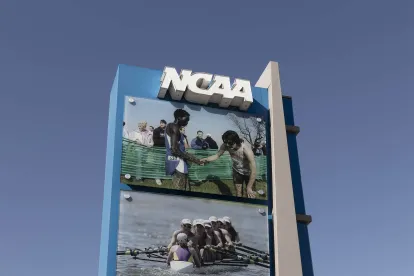Following allegations and complaints of hazing in its football program, Northwestern University retained a former United States Attorney General to conduct an internal review of the allegations and provide an analysis and risk assessment into the Athletic Department’s culture. While the reason for the review is unfortunate, this evaluation offers a critical tool for not only organizations and corporations, but also colleges and universities looking to enhance their sports program: independent culture assessments.
Northwestern Complaints and Lawsuits
In late November 2022, Northwestern’s administration received an anonymous complaint alleging multiple acts of hazing in the football program.[1] Northwestern promptly retained an outside investigator to conduct an independent investigation into the allegations and publicly disclosed the existence of the ongoing investigation in January 2023.[2] In July 2023, Northwestern released an Executive Summary outlining the investigatory process and summarizing the findings, which included initially suspending, and later terminating the head football coach.[3]
Following the anonymous complaint, the Daily Northwestern, a student-operated newspaper, published multiple articles detailing first-hand accounts from former football players—which included acts of sexually motivated hazing and identified a toxic culture of racism and bullying.[4] The articles went on to allege that the source of the toxic culture was the football team’s coaching staff, and that the baseball team’s coaching staff had created a similar environment. The articles led to an internal investigation of the baseball team and resulted in the termination of its head coach.[5]
Responses to Investigation Findings
In addition to the terminations of its football and baseball head coaches, Northwestern announced the implementation of supplemental policies and procedures related to hazing, which were in line with recommendations made during the independent review. Specific to the football program, Northwestern discontinued its annual training camp to Kenosha, Wisconsin, where some of the abuse occurred and the team also will maintain an independent monitor of the football locker room.[6] More broadly, Northwestern committed to: (i) creating an online reporting tool for student-athletes to anonymously report incidents of potential hazing or hazing-related concerns; (ii) annual, mandatory anti-hazing training for all coaches, staff members and athletes (with an emphasis on reporting options, duties to report and discipline for any future violations); and (iii) the formation of an internal working group to regularly report on further policy development, organizational culture, communication and training as well as reinforcement efforts. Northwestern also vowed to work with the NCAA and Big Ten Conference to ensure all processes and rules are followed.
To further demonstrate its dedication to ensuring a safe and inclusive sports program, Northwestern announced that former United States Attorney General Loretta Lynch would lead an “independent review of the processes and accountability mechanisms in place at the [Northwestern] University to detect, report and respond to potential misconduct in its athletics programs, including hazing, bullying and discrimination of any kind.”[7]
The Takeaway: Conducting Internal Investigations and Culture Assessments Will Become Critical in the Coming Years
The NCAA requires Division I universities and colleges to monitor their sports programs in order to ensure NCAA compliance — which includes specific rules regarding diversity, equity, and inclusion.[8] The NCAA also requires that member institutions complete a diversity, equity, and inclusion review once every four years and provide written confirmation of completion to the NCAA.”[9] Division I institutions must also appoint a designated senior compliance administrator to ensure compliance with NCAA regulations. These requirements serve as a clear message as to the crucial role internal reviews and assessments will play in the coming years. Further, institutions should consider proactive department reviews to allow for early issue-spotting and risk mitigation.
Division II universities and colleges are also required to have a compliance administrator who is singularly dedicated to monitoring, evaluating, and advising the institution on its compliance efforts.[10] The role was intentionally created to serve as an independent party, not tied to any aspect of the university’s sports programs. This requirement further demonstrates the commitment that the NCAA places on its member organizations for ongoing monitoring of their athletic departments for not only hazing concerns, but also diversity, equity, and inclusion matters.
In light of the findings at Northwestern, the NCAA’s increasing emphasis on compliance, and our previous note that women’s sports in particular are on the rise, all higher education institutions are wise to consider proactive steps they may take to evaluate their programs, compliance efforts, and areas of risk. For many organizations — regardless of industry or purpose — engaging outside counsel offers an invaluable resource for independent assessment with the opportunity to address issues and areas of improvement before they become problematic. Independent investigations typically include:
- Interviews: coaches, players, and administrations;
- Investigating any complaint(s) or concerns raised;
- Review of existing policies; and
- Recommended remedies, including adjustments to reporting mechanisms.
While often a supplement to an internal investigation, culture assessments are an additional tool to consider in a more routine, best practices review.[11] Culture assessments can be an essential tool for the due diligence process, enhances a school’s sports programs, and demonstrate proactive intent ahead of potential issues. The culture of an organization often impacts individual behavior and can broadly define acceptable group or team environments both internally and externally affecting an organization’s reputation and public view. Engaging culture assessments can also allow for thoughtful evaluation and consideration of how best to implement any necessary improvements.
[1] https://news.northwestern.edu/assets/Docs/Executive-Summary-FINAL.pdf.
[6] Executive Summary, supra note 1.
[7] https://www.washingtonpost.com/sports/2023/08/02/northwest-hazing-scandal-lawsuit-allegations/.
[8] https://web3.ncaa.org/lsdbi/reports/getReport/90008.
[9] Id.







 />i
/>i

